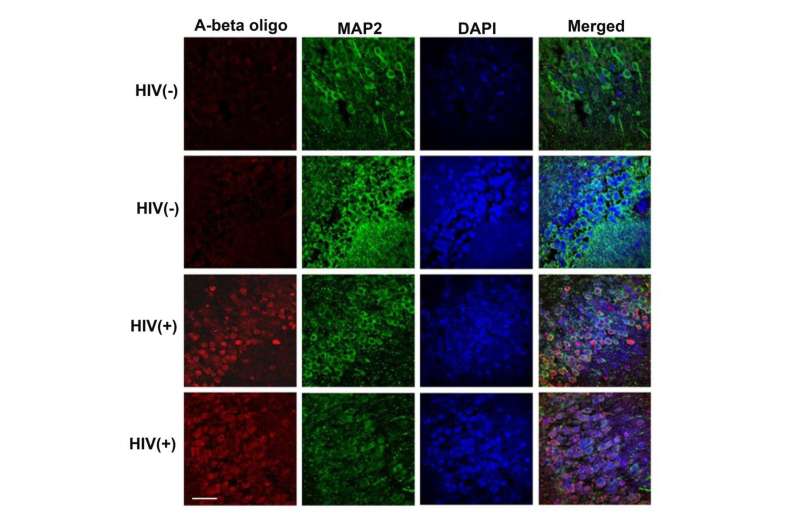Overlapping mechanisms in HIV cognitive disorders and Alzheimer's disease

A protein involved in Alzheimer's disease (AD) may be a promising target for treating neurological disorders in human immunodeficiency virus (HIV) patients, suggests a study published in JNeurosci of rat neurons and brain tissue from deceased humans. The research shows that the two conditions may damage neurons in similar ways.
Although HIV-associated neurological disorders (HAND) and AD have symptoms in common, whether they also share underlying mechanisms of disease progression is controversial because HAND patients do not exhibit the amyloid plaques that are characteristic of AD. To address this question, Kelly Jordan-Sciutto and colleagues investigated the role of a well-known AD protein—β-site amyloid precursor protein cleaving enzyme 1 (BACE1)—in HAND.
The researchers found elevated levels of BACE1 and Aβ oligomers—the compound thought to be responsible for neuronal damage in AD—in postmortem brain tissue of HIV-positive humans. Treating rat neurons with HIV-infected white blood cells from healthy humans revealed similar mechanisms of neurotoxicity.
More information: BACE1 mediates HIV-associated and excitotoxic neuronal damage through an APP-dependent mechanism, JNeurosci (2018). DOI: 10.1523/JNEUROSCI.1280-17.2018


















